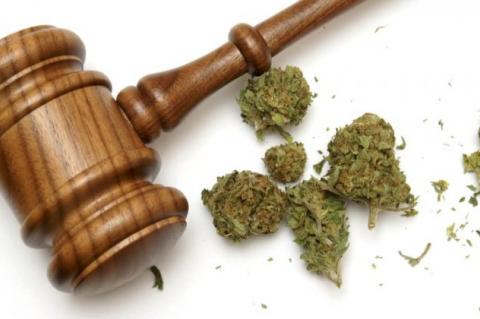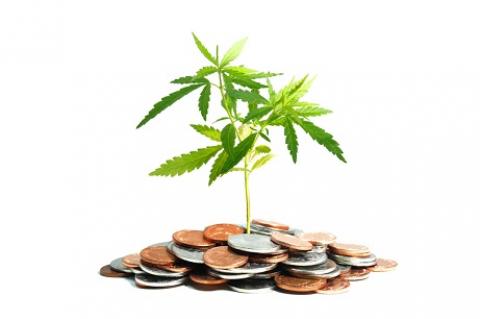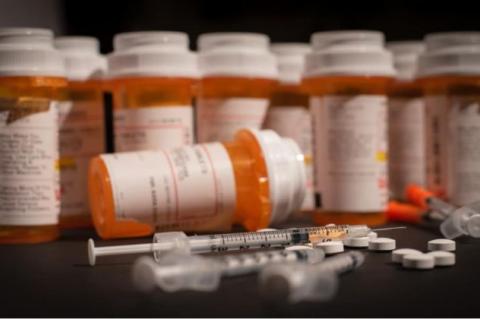The medical marijuana program in Illinois is seeing record growth since changes in the law greatly expanded the program and made it easier for patients to participate.
More than 87,000 patients have qualified for the program since stores opened in November 2015 — including a spike of almost 37,000 in the fiscal year ending June 30, a 93% increase, according to state records. The surge of new patients exceeds the number signed up in any previous fiscal year, based on the latest annual report on medical cannabis by the Illinois Department of Public Health.
The number of patients has continued to climb, according to the state’s monthly reports, since the state dropped requirements for patient fingerprints and criminal background checks in 2018, and added 11 new qualifying illnesses in August including common conditions such as chronic pain, migraines and arthritis.
Retail sales exceeded $22 million in September alone, almost evenly split between cannabis flower and concentrates and infused products.
The annual state report, which includes data through June, sheds further light on the growth and demographics of the medical cannabis industry.
Since becoming legal as a qualifying condition for medical marijuana in 2016, post-traumatic stress syndrome has become by far the most common condition cited by patients.
More than 8,600 patients were certified by doctors as having PTSD, followed by severe fibromyalgia, spinal cord disease, and cancer as the most common conditions.
The two most popular conditions act as umbrella terms for a variety of conditions, patients and industry experts said. PTSD serves as a catchall for mental health conditions that are not on the list of qualifying conditions, such as anxiety or depression, while fibromyalgia can act as a stand-in for chronic pain, which was not previously a qualifying condition.

Jim Champion, of Somonauk, is an Army veteran with multiple sclerosis who led the fight for medical marijuana in Illinois. (Jose M. Osorio / Chicago Tribune)
Army veteran Jim Champion has multiple conditions that qualify for medical marijuana, including multiple sclerosis and osteoarthritis, but some days, he said, his fibromyalgia is worst of all.
“It is awful,” he said. “It sends sharp pains through my neck and shoulders. Sometimes I just want to chop off my arms it hurts so bad. It can be completely debilitating.”
The one thing that helps, he said, are medical marijuana edibles. “That fixes me right up, more than any of the pills the Veterans Administration used to give me,” he said.
A study published in June in the Journal of Clinical Medicine found that cannabis was a safe and effective treatment for more than half of the 367 patients treated.
Jim and his wife, Sandy, were instrumental advocates in getting Illinois’ medical cannabis law passed, and in expanding access to it. Jim was a member of the state’s Medical Cannabis Advisory Board until it was disbanded as part of a political deal to add post-traumatic stress disorder as a qualifying condition in 2016.
People with medical conditions like fibromyalgia, a disorder known for widespread pain, fatigue and mood effects, share information, and that can lead more patients to come forward seeking help, Dr. Leslie Mendoza Temple said. Patients are required to get a doctor’s certification that they have a qualifying condition, and doctors must document any health problem cited, said Mendoza Temple, medical director of integrative medicine for NorthShore University Healthcare, who has certified some 400 patients.
“I’m getting more and more interest,” she said. “It’s bringing out people looking for relief.”
Cannabis doesn’t work for all patients, and some take too much and have bad experiences, as with any drug, she said. Now that chronic pain is a qualifying condition, she said, people may no longer need to cite fibromyalgia.
In addition to the existing medical marijuana program, the new Opioid Alternative Pilot Program, which started early this year, allows patients to obtain medical marijuana in place of prescription painkillers. It has registered an additional 2,200 new patients — most of them for joint, back or neck pain — with another 1,000 awaiting physician certification, the state report found.
The number of patients seeking to replace opioids is relatively small in part, industry members said, because physician certification of patients lasts only 90 days, compared with regular patient certifications of one to three years.
Also this year, the state began issuing provisional access registration cards to let patients and their caregivers buy medical cannabis while their applications are being processed.
In August 2019, the state added 11 new qualifying conditions, including chronic pain, migraines, anorexia nervosa and autism, but the report only covered the state’s fiscal year through June 30, so did not include those conditions.

Patient consultant Mickey Nulf hands product to client Michelle Farina at Columbia Care medical cannabis dispensary in Chicago in June 2019. (Chris Sweda / Chicago Tribune)
Since sales began in November 2015, the medical cannabis program in Illinois has had about $200 million in wholesale sales, and $364 million in retail sales — a markup of about 76%, which has increased with greater demand this year.
About 4,500 physicians certified patients for medical cannabis in the most recent fiscal year. Most certified fewer than 25 patients, but 58 physicians certified more than 100 patients each. One unidentified physician submitted certifications for patients to substitute cannabis for opioids more than 1,000 times.
Most of the patients — 55% — were 50 years old or older. The number of patients was distributed fairly evenly across all age ranges, though those under 30 made up only 11 percent of patients. The number of men and women was split almost evenly, with slightly more women participating.
Geographically, not surprisingly, Cook County, the state’s most populous county, had the most patients by far with 17,587, followed by the collar counties and Winnebago County, where Rockford is located. One-third of the counties had 60 patients or fewer.
Of 21 licensed operating cultivation centers and 55 licensed medical cannabis dispensaries in Illinois, the most popular by far was the Clinic Mundelein, with 2,550 patients, followed by Dispensary 33 in Chicago’s Uptown neighborhood, EarthMed in Addison, 3C Compassionate Care Center in Naperville, and Moca Modern Cannabis in Chicago’s Logan Square —all in or near relatively affluent areas.
Linda Marsicano, a spokeswoman for Green Thumb Industries, which operates the Clinic Mundelein and 3C, credited their patient care specialists for providing personalized service and public education.




